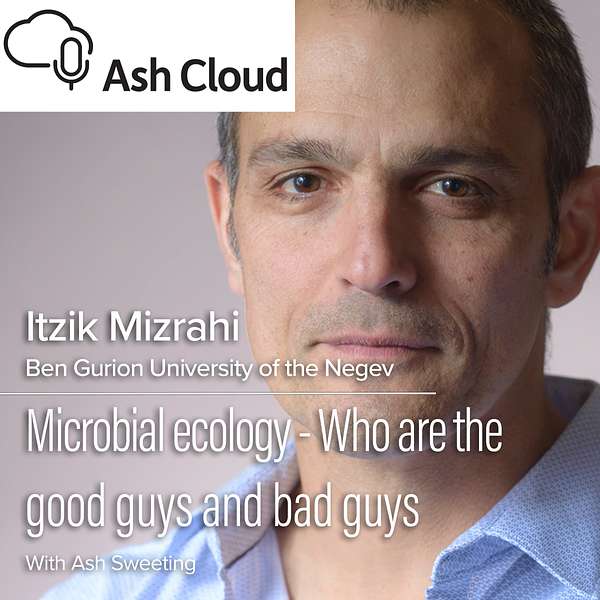
ASH CLOUD
ASH CLOUD
Microbial good guys and bad guys, and their duplicitous nature, with Itzik Mizrahi - Ben Gurion University of the Negev
Microbes communicate, they make decisions, they collaborate, and they fight. Sometimes they are good guys and other times they are bad guys. Understanding the importance of individual species withing the ecosystem and how species interact is critical for navigating our food sustainability challenges.
The good news is that animals with higher feed efficiency produce less methane. However, our understanding of the ecological forces driving that double benefit is limited and the natural variation is huge with a five fold difference in methane emissions from animals in the same herd.
Itzik Mizrahi is a microbial ecologist studying the ecological and evolutionary forces that shape microbial communities in nature and specifically, in gut environments. His work investigating the ecology of rumen microbiome focuses on understand the cooperative and antagonistic interactions between species with the aim of improving food security and minimizing the environmental impacts of livestock production.
Microbes are everywhere and the Mizrahi Lab studies what makes them live together.
I recently caught up with Itzik to hear more about his work, you can listen to a short summary followed by our full conversation here.